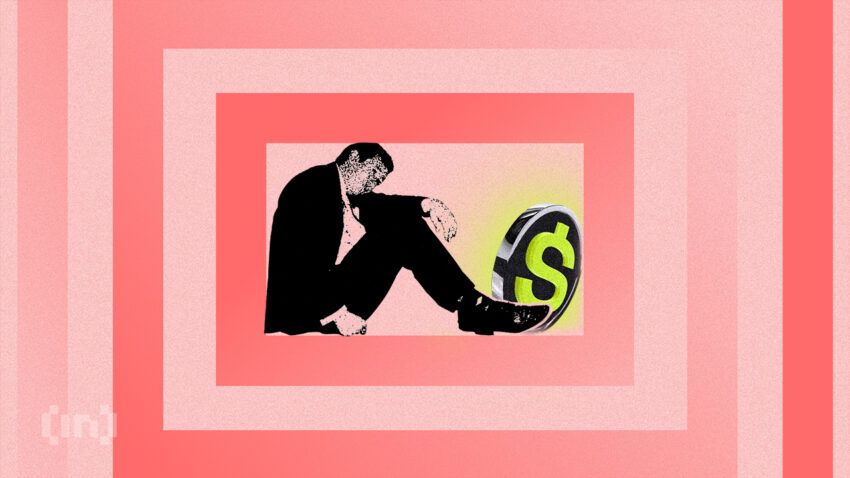Recession and depression are terms used to describe significant periods of economic decline. These downturns can result from various factors, such as financial crises, sudden economic shocks, or shifts in consumer and business confidence. This guide uses past financial crises as case studies to explain what happens when economies face significant downturns.
KEY TAKEAWAYS
➤ Recessions are defined by two consecutive quarters of negative GDP growth and widespread economic downturns.
➤ Recessions can be triggered by economic shocks, financial crises, or consumer confidence declines.
➤ Inflationary recessions, or stagflation, combine high inflation with declining economic activity.
➤ Depressions are more severe. They usually last longer and have major global impacts.
What is a recession?
A recession generally occurs when the economy stops growing. Most financial institutions define it as an economic downturn marked by a decline in activity. Recessions are typically measured in months.
Governments usually define a recession as an economic decline after two consecutive quarters of negative gross domestic product (GDP) growth.
A recession can be limited to one geographical region or country. According to the U.S.-based National Bureau of Economic Research (NBER), a recession is a “significant decline in economic activity that is spread across the economy and lasts more than a few months.”
While multiple criteria, such as depth, duration, and diffusion, are required to meet recession thresholds, only one of these may partially offset the recession’s impact.
Economies are usually subject to cycles, and recessions are often predictable. A recession may result in stagnant wages, higher costs, and reduced consumer spending.
Therefore, those looking to achieve financial freedom should be mindful of the cyclical nature of recessions, as they are likely to occur multiple times throughout one’s life.
Recessions are often described as “the lesser of two evils,” particularly when compared to economic depressions.
What causes a recession?
Recessions can be caused by several factors, including inflation and deflation cycles, the burst of asset bubbles (such as in real estate or stocks), and a slowdown in manufacturing.
A stock market crash, high interest rates, or dipping consumer confidence can trigger any of these situations.
For instance, in recent years, the global COVID-19 pandemic forced many businesses to close. The chain of events that followed led to a sharp rise in unemployment. As a result, people without income struggled to pay their bills, accumulating more debt, which further strained the economy.
Ultimately, economic recovery depends on people returning to work and normal activities. That said, one positive aspect of the current job market is the growing availability of remote jobs and freelance opportunities, which can provide some financial stability during localized or regional economic downturns.
Characteristics of recession
Recessions are marked by several economic developments, including:
- High unemployment: Companies may lay off workers in response to declining demand.
- Falling prices and real estate sales: Declining demand for goods affects property values.
- Stock market declines: Investors lose confidence in the economy, leading to falling markets.
- Declining wages: As income stagnates or falls, consumers may struggle to meet their financial obligations.
- Negative GDP: Lower consumer spending and investment result in decreased GDP.
It’s important to recognize that recessions are part of economic cycles. 13 recessions have occurred since the end of World War II. One of the most notable examples is the Great Recession of 2008, which started in December 2007 and lasted until June 2009.
The main cause was the subprime mortgage crisis, which led to the collapse of the housing market and triggered a global financial crisis.
Some statistics from the 2008 Great Recession:
➤ Half of all families lost 25% of their wealth, while one-quarter lost 75%, according to a study published in the National Library of Medicine.
➤ More than 8.7 million jobs were lost between December 2007 and 2010, according to data from the U.S. Bereau of Labor Statistics.
The Great Recession had widespread effects on all parts of the economy, but it must not be confused with a depression.
What is a depression?
A depression, on the other hand, refers to a much more severe economic downturn. It involves a sharp reduction in industrial production, widespread unemployment, and a significant drop in international trade. Companies may halt production and close factories, resulting in fewer exports.
While a recession may be restricted to a single country, depressions often have a global impact, as seen during the Great Depression of the 1930s, which lasted a decade.
The Great Depression began in the U.S. in 1929 and lasted until 1939. It was the worst economic downturn in history and had devastating consequences.
Recession vs. depression
| Aspect | Recession | Depression |
| Economic cycle | Part of a normal cycle; temporary economic decline | Severe economic downturn, often much longer-lasting |
| Severity | Characterized by unemployment, reduced income, delayed investments | Sharp reduction in industrial production, widespread unemployment, reduced trade |
| Impact on production | Production may slow, but usually doesn’t halt completely | Companies halt production, close factories, and exports decrease |
| Geographical impact | Often restricted to a single country or region | Typically has a global impact, affecting multiple countries |
| Historical example | The Great Recession (2008-2009) | The Great Depression (1929-1939) |
| Duration | Shorter, typically lasting months to a couple of years | Much longer, often lasting several years |
The Great Depression of the 1930s
The United States faced the following during the Great Depression:
- Skyrocketing unemployment: At its worst times, nearly 25% of the workforce was unemployed.
- Falling wages: Even people who managed not to lose their job started to earn less than what they did before the depression. During the Great Depression between 1929 and 1933, wages fell by 42.5%.
- Large declines in GDP.
During the Great Depression, many banks went bankrupt between 1930 and 1933.
| Great Recession of 2008 | Great Depression of 1930 | |
|---|---|---|
| Duration | Lasted for two years | Lasted a decade (1929–1939) |
| Unemployment | Up to 10.6% | Peaked at 24.9% |
| Location | Confined to a limited number of countries | The Great Depression was felt across the world |
| GDP | Dropped by 4.3% | Dropped by 30% |
Recession vs. inflation
Inflation represents an increase in the cost of goods and services in an economy over time. Consequently, the currency decreases in value, which means you can buy fewer services and products with the same amount.
As a result, the currency is said to be weakened. While economists believe moderate inflation can be beneficial to an economy as it may help economic growth, high inflation is bad news for consumers and their savings.
Inflation is caused by an increase in demand for services and products. When demand increases and exceeds supply, prices rise. Inflation can be expressed as a percentage. It is a decline in a currency’s buying power.
Types of inflation
- Demand-pull inflation: This is represented by a gap between the demand and supply of goods and services. This is inflation that occurs when there is a greater demand than the economy can produce.
- Cost-push inflation: This refers to inflation that is caused by an increase in the cost of production, resulting in a rise in the price of the final product.
- Built-in inflation: This is caused by past events that persist today. Workers may be able to demand an increase in their wages, which can lead to a rise in prices for products and services.
| Recession | Inflation | |
|---|---|---|
| Definition | The overall drop in economic activity as a result of a drop in GDP drop for two consecutive quarters | Represents an increase in the price of goods and services over a period of time |
| How is it measured? | GDP | Wholesale Price Index (WPI) and the Consumer Price Index (CPI) |
| Period | Only in certain economic periods | Always exists |
As the assets increase in value, inflation favors asset owners. It does not favor those who hold cash, as the currency’s value declines. Usually, inflation should be controlled through monetary policies, where the central bank determines how much money is available and at what rate.
What is an inflationary recession?
An inflationary recession, or stagflation, is when high inflation coincides with a decline in economic activity and persistent unemployment. Economists find stagflation challenging to manage because policies that address one issue may worsen the others.
One of the most well-known examples is the 1973 oil embargo imposed by the Organization of Petroleum Export.
Recession vs. depression vs. stagflation
| Aspect | Recession | Depression | Stagflation |
|---|---|---|---|
| Economic activity | Decline in overall economic activity | Extended period of severe economic downturn | Low economic growth combined with high inflation |
| Unemployment | May rise, worsening economic conditions | High and sustained unemployment | Unemployment may fluctuate based on economic shocks |
| Government response | Tries to prevent escalation into depression | Implements policies to mitigate widespread impact | May attempt expansionary policies, raising prices |
| Effect of inflation | Inflation may accompany recession | Inflation can worsen economic conditions | A sharp reduction in consumer spending |
| Consumer behavior | Consumers reduce spending due to income stagnation | Inflation may accompany a recession | Consumers react to monetary policies, affecting prices |
Recessions and depressions are both impactful
Understanding the key factors behind these economic crises can help you prepare for downturns. Recessions occur regularly in all economies and typically last a few months to a couple of years. However, if they persist, the effects can worsen and may lead to depression.
The last global depression was the Great Depression of the 1930s, but most experts agree that there is no immediate cause for concern. That said, rising inflation rates are a point of concern, and consumers should take steps to safeguard their financial stability and hedge investments.
Frequently asked questions
How is recession different from depression?
Was 2008 a recession or depression?
Who benefits in a recession?
Is a depression worse than a recession?
Does a recession follow a depression?
What was worse, the Great Depression or a recession?
Is a recession like the Great Depression?
Disclaimer
In line with the Trust Project guidelines, the educational content on this website is offered in good faith and for general information purposes only. BeInCrypto prioritizes providing high-quality information, taking the time to research and create informative content for readers. While partners may reward the company with commissions for placements in articles, these commissions do not influence the unbiased, honest, and helpful content creation process. Any action taken by the reader based on this information is strictly at their own risk. Please note that our Terms and Conditions, Privacy Policy, and Disclaimers have been updated.




